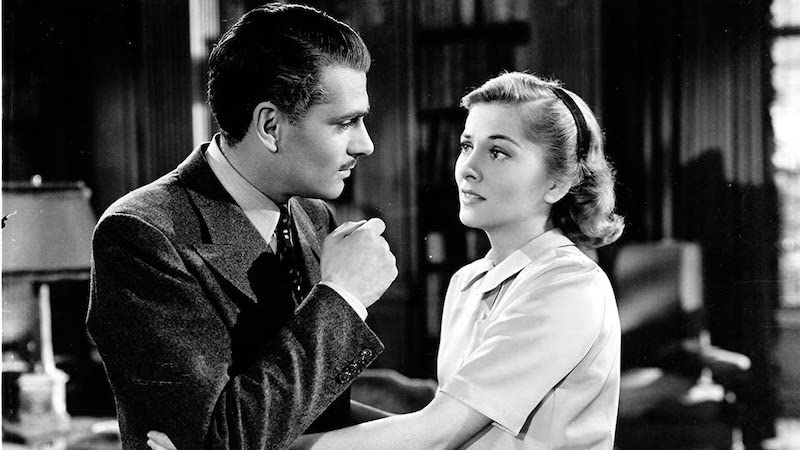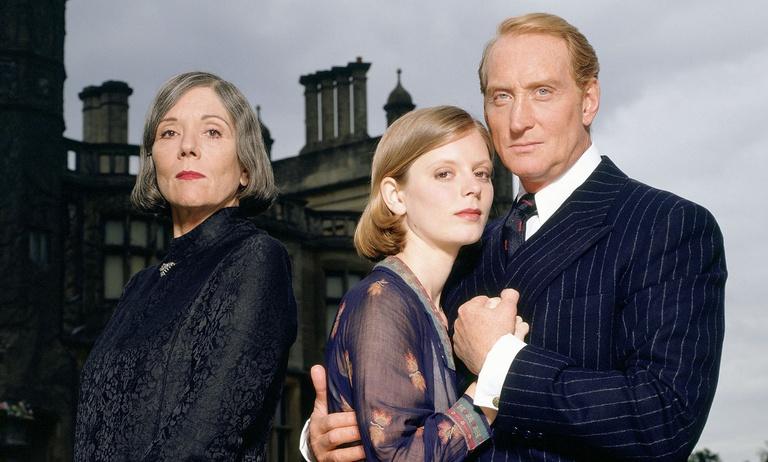Power in Rebecca: is age just a number?
80 years of adaptations show that Rebecca's dark story of disempowerment and deceit keeps shifting the age dynamics of its leading characters.

This article is stuffed with spoilers of Daphne Du Maurier's novel and possibly the Netflix adaptation coming out on October 21. Read on at your own risk.
Published in 1938 and never out of print, Du Maurier's gothic novel Rebecca is a wildly popular dark tale. Reading it makes you shiver, packed with disempowerment and the exclusionary practices of class, jealousy, and secrets.
With a new Netflix adaptation coming soon, I'm curious about how casting choices can influence our interpretation.
The Older Man
Rebecca taps into a common gender and age gap (older man, younger woman) that becomes more disturbing as the story unfolds. When there's an age gap between partners, it can freak people out and make many ask questions about dating double-standards.
The age gap concern is really about the power dynamic - can there be an equality between partners when one is significantly older? And what about the nature of the age gap? People tend to be more concerned when the younger partner is in their late teens or early twenties. So sometimes the age gap and the nature of it is important. For Du Maurier, these are big factors.
Consider the atmosphere between our key characters: Maxim de Winter and his second wife. There's so much intimacy between the reader and the “second Mrs de Winter”. We're privy to her imagination and we feel how locked out of high society she is by her shyness and upbringing. But Du Maurier denies us her name. She is always “Mrs de Winter”. This namelessness sets up the unbalanced power dynamic that rules the story.
Maxim de Winter (42M) – our very tall, very English, very landed-gentry leading man – is a murderer. He's not just your garden-variety killer either, oh no, he murders Rebecca, his first wife for the apparent crime of not respecting him enough (unfun fact, the murder of one’s girlfriend or wife is known as uxoricide).
When Maxim decides he needs to get away from the scene of the crime, that would be his family ancestral mansion, Manderley, where better to head than the sunny shores of Monte Carlo. It's there that he meets and awkwardly proposes to our unnamed protagonist, a young woman (early 20s F) who has no family, is working a job she hates, and whose most striking characteristics are her naivety and imagination.
If this reads like a murderer finding a new wife to distract attention away from his crime, well, there’s a reason this book continues to fascinate...
Rebecca on Screen
There are plenty of adaptations of Rebecca. Let's take a quick tour and look at their casting choices. How do they bring the imbalance of power to life?
Hitchcock’s Rebecca (1940)

Hitchcock's Oscar winning film sets the standard for tweaking the novel. The age gap between Lawrence Olivier (32) and Joan Fontaine (22) was ten years. This halves the original 20 year gap and alters the power dynamic.
But wait, there’s more! The biggest change to the power dynamic comes not from the age gap, but from rewriting the plot! Instead of Maxim murdering Rebecca, her death is an accident (oops). The change was made at the behest of Hollywood Production Code, which wouldn't allow Du Maurier's plot to stand. But such a drastic change means that important ideas from the original story are lost.
The blatant exploitation of the second Mrs de Winter is undone by the fact that there’s no crime to conceal. There’s a creepy big house and the looming presence of Rebecca, but there’s also a love between two people, one who hides a dark secret, but ultimately isn’t a killer.
You could argue that the naivety of the second Mrs de Winter is the most important part in all this rather than the age gap, but that really lets Maxim off the hook.
Consider her situation in the novel: she's young, lacks worldly experience, and has no family support. At 42, Maxim's advances are nothing short of predatory. The immortal line, "I'm asking you to marry me, you little fool," makes clear that this won't be a union of equals.
Still it's not a surprise when our protagonist chooses a substitute father figure over her annoying employer...
But if you halve the gap à la Hitchcock, Maxim is less a substitute father and more of a hot (?) older brother.
Rebecca 1997 miniseries

The age gap can swing the other way, and indeed delivers a heightening of the sense of exploitation. In 1997, Rebecca was adapted as a miniseries with Charles Dance (51) and Emilia Fox (23).
With the gap extended to 28 years and Fox in her first substantial acting role, the sense of Maxim's exploitative power is brought to the fore. Fox's unknown qualities as an actor support the naivety angle as the original audience brings few assumptions as to how the role will be played.
A 21st Century Rebecca
When we hit the Netflix adaptation all sense of proportion is lost. Armie Hammer (34) stars alongside Lily James (31). With the age gap reduced to a mere three years, it may be hard for audiences to buy into the naivety angle.
With director Ben Wheatley’s take that “I wanted to make something that had more love in it”, it’ll be interesting to see how the ideas of desperation, exploitation and unhealthy devotion play out.
Du Maurier does an incredible job of placing us into the experience of a young and vulnerable woman. When she interprets Maxim’s murder in terms of her heightened devotion to him – “I would fight for Maxim. I would lie and perjure and swear, I would blaspheme and pray” – you can’t help but be struck by her desperation to be wanted. Anything might be forgiven when you’re unsure about your own self-worth.
As we await the new Rebecca the old questions that the novel raises return: What kind of love can be built upon lies?
Byteside Newsletter
Join the newsletter to receive the latest updates in your inbox.

